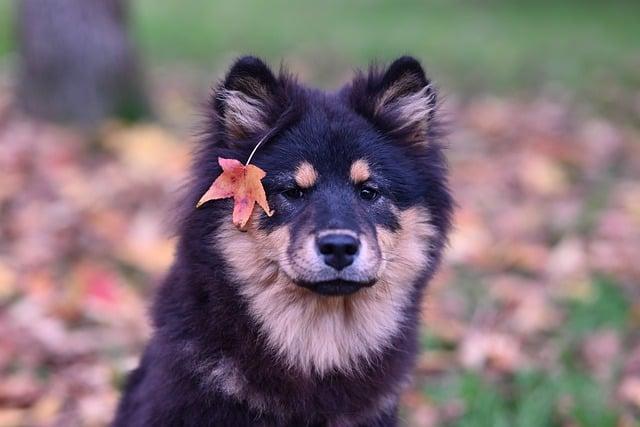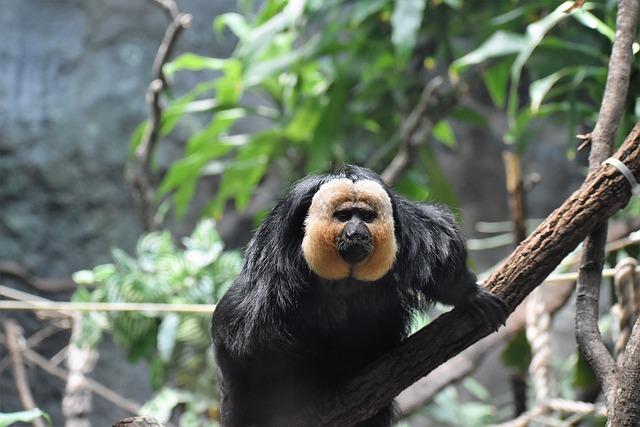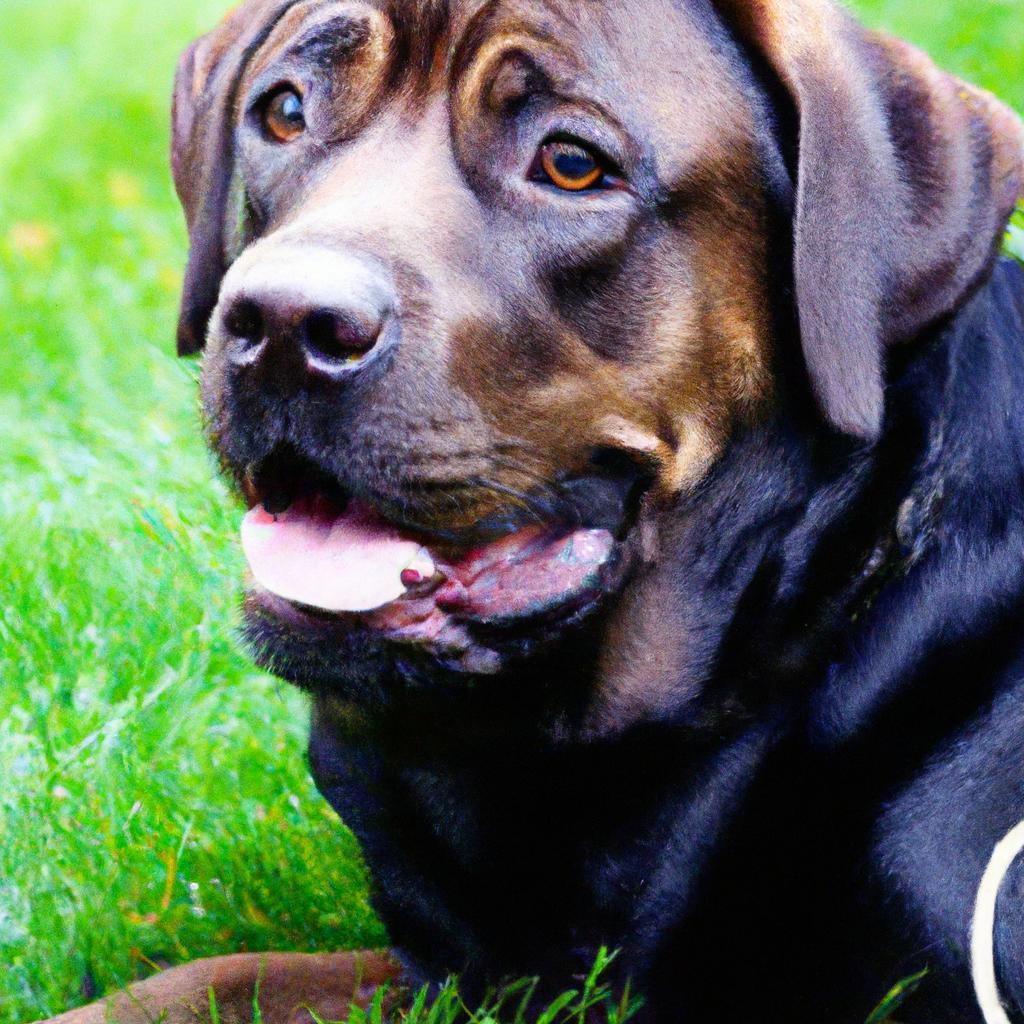In a quiet neighborhood, a family welcomed a German Shepherd named Max. From day one, his instincts kicked in. One evening, as shadows crept across the yard, Max stood tall, his keen eyes scanning for any sign of trouble. When a stranger approached, Max’s deep bark echoed, sending a clear message: this home was protected. German Shepherds are not just loyal companions; they are natural guard dogs, combining intelligence, strength, and an unwavering protective instinct. Choose a breed that safeguards your peace of mind—choose a German Shepherd.
Contents
- Understanding the Traits of Natural Guard Dogs
- Top Breeds Renowned for Their Protective Instincts
- Training Techniques to Enhance Your Dogs Guarding Abilities
- Creating a Secure Environment for Your Guard Dog
- Q&A
Understanding the Traits of Natural Guard Dogs
When considering the characteristics that define a natural guard dog, several key traits come to the forefront. These dogs possess an innate ability to assess their surroundings and respond appropriately to potential threats. Their heightened senses allow them to detect unusual sounds or movements, making them vigilant protectors of their territory and loved ones. This instinctual awareness is often coupled with a strong sense of loyalty, ensuring that they remain devoted to their families while being wary of strangers.
Another significant trait of natural guard dogs is their **fearlessness**. Unlike many breeds that may shy away from confrontation, these dogs exhibit a courageous demeanor, ready to defend their home and family if necessary. This bravery is not just about physical strength; it also encompasses a mental fortitude that enables them to stand their ground in the face of danger. Their confidence can be a deterrent to potential intruders, as they project an aura of authority and control.
In addition to loyalty and fearlessness, natural guard dogs often display a **protective nature**. This trait manifests in various ways, from barking to alert their owners of intruders to physically positioning themselves between their family and perceived threats. Their protective instincts are deeply rooted in their desire to safeguard their pack, making them reliable companions for families and individuals alike. This behavior is not merely instinctual; it is reinforced through training and socialization, ensuring that they can differentiate between normal activities and genuine threats.
Lastly, the **intelligence** of natural guard dogs plays a crucial role in their effectiveness as protectors. These breeds are often quick learners, capable of understanding commands and responding to training with remarkable agility. Their intelligence allows them to assess situations critically, making decisions that prioritize the safety of their family. This combination of instinct, loyalty, fearlessness, and intelligence makes them not only excellent guardians but also beloved family members who contribute to a sense of security and peace of mind.
Top Breeds Renowned for Their Protective Instincts
When it comes to selecting a dog with a natural inclination to protect, certain breeds stand out due to their innate guarding instincts and loyalty. These dogs not only serve as companions but also as vigilant protectors of their families and homes. Their keen senses and strong protective nature make them ideal choices for those seeking a reliable guardian.
Among the top contenders, the **German Shepherd** is widely recognized for its intelligence and versatility. Known for their unwavering loyalty, these dogs are often employed in police and military roles, showcasing their ability to assess situations and respond appropriately. Their protective instincts are coupled with a strong desire to please, making them trainable and effective in various protective roles.
Another breed that excels in guarding is the **Rottweiler**. With a robust physique and a confident demeanor, Rottweilers are naturally protective of their families. They are known for their courage and strength, which, when combined with proper training and socialization, can make them formidable guardians. Their loyalty to their owners is unmatched, ensuring that they will stand firm in the face of any threat.
The **Doberman Pinscher** also deserves mention for its exceptional guarding abilities. This breed is characterized by its alertness and intelligence, making them quick to respond to any potential danger. Dobermans are not only protective but also highly trainable, allowing them to adapt to various environments while maintaining their role as vigilant protectors. Their sleek appearance and powerful presence further enhance their effectiveness as guard dogs.
Training Techniques to Enhance Your Dogs Guarding Abilities
To effectively enhance your dog’s guarding abilities, it’s essential to implement a variety of training techniques that focus on building confidence, obedience, and alertness. One of the most effective methods is **positive reinforcement**. This technique involves rewarding your dog for displaying desired behaviors, such as barking at strangers or alerting you to unusual sounds. By consistently rewarding these actions, you reinforce their instinct to protect, making them more likely to respond appropriately in real-life situations.
Another crucial aspect of training is **socialization**. Exposing your dog to different environments, people, and other animals helps them distinguish between normal and suspicious behavior. This exposure can be structured through controlled playdates, visits to busy parks, or even training classes. A well-socialized dog is less likely to react aggressively out of fear, allowing them to assess situations more accurately and respond with confidence when necessary.
Incorporating **obedience training** is also vital for developing a reliable guard dog. Teaching commands such as “stay,” “come,” and “leave it” not only establishes a strong bond between you and your dog but also ensures they can be controlled in various situations. A dog that listens to commands is more likely to follow your lead when it comes to guarding, allowing you to manage their instincts effectively. Consistent practice and patience are key to mastering these commands.
Lastly, consider using **protection training** techniques that simulate real-life scenarios. This can include controlled exercises where your dog must alert you to a perceived threat or protect you from a stranger in a safe environment. These drills not only sharpen their instincts but also teach them the appropriate level of response. Remember, the goal is to create a balanced dog that can discern when to act and when to remain calm, ensuring they are both a protector and a beloved companion.
Creating a Secure Environment for Your Guard Dog
is essential to ensure their effectiveness and well-being. A well-structured space not only enhances their protective instincts but also fosters their overall health and happiness. Start by establishing a designated area where your dog can feel safe and comfortable. This space should be free from distractions and disturbances, allowing your guard dog to focus on their duties.
Consider implementing physical barriers such as fences or gates to define your property and keep intruders at bay. **High, sturdy fences** can deter unwanted visitors while providing your dog with a clear boundary. Additionally, ensure that the area is well-lit, especially during nighttime. **Motion-sensor lights** can be particularly effective, as they illuminate the surroundings and alert your dog to any unusual activity.
Training is another critical component in creating a secure environment. Regular obedience training not only reinforces your dog’s protective instincts but also strengthens the bond between you and your pet. Incorporate commands that emphasize alertness and response to potential threats. **Positive reinforcement** techniques, such as treats and praise, can motivate your dog to perform their guarding duties effectively.
Lastly, consider the psychological aspect of your dog’s environment. A calm and stable atmosphere can significantly enhance your guard dog’s performance. **Minimize loud noises** and chaotic situations that may cause anxiety. Providing mental stimulation through toys and interactive games can also keep your dog engaged and focused. By prioritizing both physical and emotional security, you create an optimal environment for your natural guard dog to thrive.
Q&A
-
What breeds are considered natural guard dogs?
Several breeds are renowned for their guarding instincts, including:
- German Shepherd
- Rottweiler
- Doberman Pinscher
- Belgian Malinois
- Boxer
These breeds possess strong protective instincts, loyalty, and intelligence, making them excellent choices for guarding homes and families.
-
What traits make a dog a good guard dog?
A good guard dog typically exhibits:
- Protectiveness towards its family
- Alertness to unusual sounds or movements
- Confidence in unfamiliar situations
- Strong territorial instincts
These traits ensure that the dog can effectively deter intruders and protect its loved ones.
-
Can any dog be trained to be a guard dog?
While some breeds have natural guarding instincts, many dogs can be trained to be effective guard dogs. Key factors include:
- Temperament: A dog should be confident and not overly aggressive.
- Socialization: Proper exposure to various environments and people is crucial.
- Training: Consistent and professional training can enhance a dog’s protective abilities.
With the right approach, many dogs can learn to guard effectively.
-
Are natural guard dogs safe for families?
Yes, natural guard dogs can be safe for families when properly trained and socialized. Important considerations include:
- Early socialization with children and other pets
- Consistent training to reinforce positive behavior
- Supervision during interactions with strangers
With the right upbringing, these dogs can be both protective and loving family companions.
choosing a natural guard dog is not just about protection; it’s about finding a loyal companion who will safeguard your home and family. Invest in a breed known for its guarding instincts, and enjoy peace of mind with a devoted protector by your side.

大家好,我是彼得潘,專業的手法身體治療師。我喜歡探索和研究各種主題,並透過與人工智慧的合作分享專業、實用、有趣的文章。我們定期進行人工審核,以確保內容的準確性。如果您發現文章中有任何不準確的地方,請隨時與我們聯繫,我們會及時糾正。您可以透過 [email protected] 與我們聯繫。



